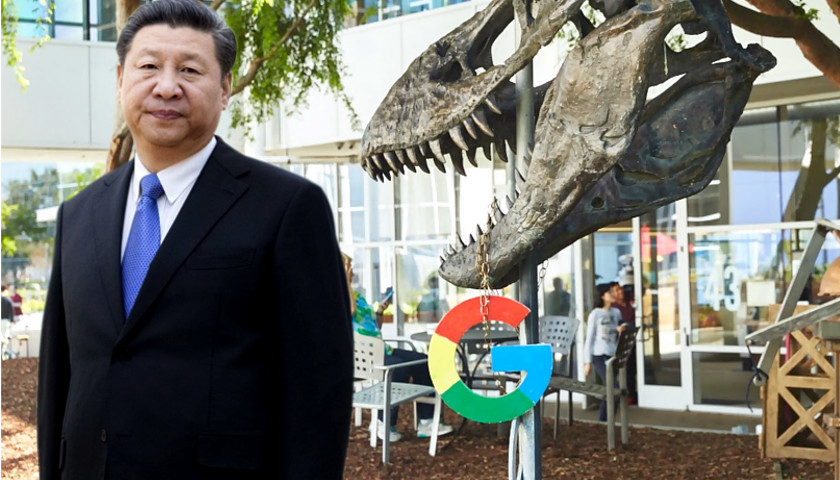by Rachel Bovard
As the world grapples with the coronavirus pandemic, China has become infamous for its role in allowing the virus to spread. From misleading the World Health Organization about the virus’ contagious elements, restricting the access of global investigators to infected sites, and lying about their infection numbers, China single-handedly stole months of preparation from other countries that have been savaged by the disease.
China has also hoarded masks and personal protective equipment from desperate countries and threatened to withhold critical medicines relied upon by millions of Americans.
It turns out that China actually is the supervillain about which we’ve been warned. This now presents a question for U.S. tech companies, which in many cases, have bound their futures to China. Presented with the undeniable evidence of China’s treachery, will they now finally untangle themselves from the country?
For years, tech companies like Apple have outsourced their manufacturing to China – and, increasingly, bent the knee to Chinese demands. Apple, in particular, has a troubling pattern of acquiescing to China’s commands on things like privacy and data storage. Even Apple’s encryption keys – which unlock the data of millions of users – are stored in China.
As residents of Hong Kong protested for their freedoms in October, Apple, at the behest of the Chinese government, removed an app from its store that was allowing protestors to evade police. This is par for the course for Apple, which dutifully pulled 25,000 apps from Chinese app store after the Chinese government declared them “illegal” in 2018.
Likewise, Google, salivating over the profits to be made in the country, was busted developing a censored search engine for the Communist regime. Google’s decision to end the project was due only to the protestations of their own employees. In July, billionaire investor and Facebook board member Peter Thiel raised questions about Google’s work with the Chinese military, and called Google’s behavior “seemingly treasonous.” Google also recently let their contract with the U.S. military lapse.
In a particularly vile discovery last year, it was revealed that Google, Apple, and even Amazon have been complicit in facilitating the sale of apps used by the Chinese government to suppress and imprison the country’s minority Muslim population. Tech companies have also been accused of using the forced labor of China’s persecuted minorities to build their devices.
At a Senate Judiciary Committee hearing in November, Klon Kitchen, a technology analyst at The Heritage Foundation and a former intelligence officer painted a grim portrait of Big Tech’s usefulness to China: “China imprisons and tortures and kills religious minorities and political dissidents, and it’s using compliant companies to do this at scale.”
This all comes on the heels of a new law that took effect in China late last year, which requires all firms operating in the country – including those that are foreign-owned – to hand over all internal communications, trade secrets, intellectual property, and data to the Chinese government.
Practically speaking, this gives China complete control over the foreign businesses that operate within the country. U.S. manufacturers found this out the hard way recently when China refused to allow them to export medical safety gear they produced, out of concern that Chinese citizens would need it first.
For tech companies, the ramifications are enormous. Not only will China have access to companies’ data protection methods, they’ll also have access to information on users, as well as private communications and trade secrets. China’s law gives the Chinese government and its intelligence services an absolute right to this information. Or, as Kitchen put it, China will have “access to every bit and byte of data that is stored on, transits over, or in any other way touches Chinese information infrastructure.”
The behavior of tech companies, which increasingly are entangled with China, is rapidly becoming a reflection of their values. And legislators are starting to take notice.
President Trump, along with Senators Tom Cotton (R-Ark.), Ted Cruz (R-Texas), Marco Rubio (R-Fla.), Marsha Blackburn (R-Tenn.), Lindsay Graham (R-S.C.), and Josh Hawley (R-Mo.) have begun to probe Big Tech’s connection to China, with Hawley going so far as to question publicly whose side these tech companies are actually on: America’s, or their own?
“You have been more than happy to partner with the most repressive authoritarian regime on the planet,” Hawley snapped at Karan Bhatia, vice president of public policy at Google during a hearing last July. “All for profits. Whatever it is that’s good for Google.”
Google continues to lobby the U.S. government on behalf of the Chinese telecom giant Huawei, despite the fact that Huawei poses such a threat to U.S. consumer data that the heads of six U.S. intelligence agencies have urged Americans not to use their phones. (The sale and use of Huawei phones are already banned on U.S. military bases around the world.) Apple, for its part, refuses to even show up at congressional oversight hearings.
Big Tech loves to talk about its values – what they give back, how they’ve made the world better, and how Woke they are.
But is being loyal to American values something these companies prioritize? Their willingness to bend the knee to China’s censorship, their outright facilitation of gross human rights abuses, and their seeming disregard for the data protections or basic freedoms of Chinese citizens, suggests otherwise.
China has finally shown us who they are: a hostile adversary, whose values and interests diverge strikingly from our own. It’s time we believe them and make our policy choices accordingly.
The world is finally waking up to China’s bad behavior. Will Big Tech?
– – –
Rachel Bovard is senior director of policy at the Conservative Partnership Institute and Senior Advisor to the Internet Accountability Project.




